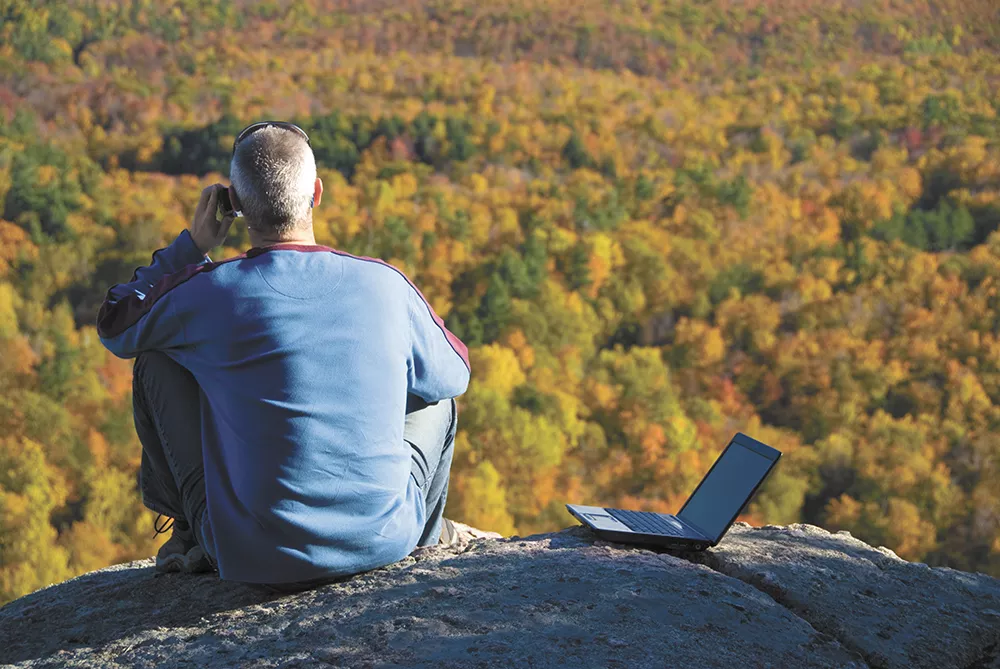When I head out to visit my parents west of Spokane, I have to warn people: My cellphone will not work. Though just 20 minutes from downtown, steep geography has conspired to keep my childhood home off the grid. Do not be alarmed, but you cannot call, text, email or even Facebook chat me for the next few hours. All calls come in via landline.
What was once an inconvenience has increasingly become a novelty in the modern world of constant connectivity. Dozens of personal or work-related emails and texts stream into my phone at every hour of every day.
Most messages can be ignored, except for the ones that can't be.
Technology now connects us in a million previously unimagined ways, but more and more research reveals a corresponding toll. A study released earlier this month blames "telepressure," the stress of ever-incoming work updates and the obligation to respond, for rises in fatigue, sleeplessness and other health issues. Other studies link connectivity to depression or distraction.
We depend on our phones more than ever — for emergency calls, driving directions, restaurant recommendations and basic boredom aversion. New travel services, once focused on "getting away," have embraced the popular call for increased web connection. Airlines now commonly offer Internet. Chevrolet has advertised a new line of vehicles with built-in Wi-Fi. And even Yellowstone National Park saw sharp controversy last week over a plan to expand fiber-optic network coverage.
Convenience has demanded a wider grid, faster service and more reliable network coverage. But a lifeline can also be a leash.
Lost cellular service can be disturbing. When hurrying out the door, I often leave without a concrete driving course or social plans. GPS will get me wherever. Meeting details can be confirmed en route. While we once finalized arrangements in advance, we no longer bother. Why get locked into something that might change? Armed with smartphones, we react and plan on the fly — often with the attention span of one.
So it's liberating to go back to that. Traveling to a foreign country often means forgoing that constant connection. Years ago, I might duck into an Internet café for a brief link to home or to check my itinerary; I otherwise traveled without the obligation of posting status updates.
Wi-Fi is more widely available today in pubs or hotels, but I still enjoyed the challenge of traveling unplugged during a recent trip to Canada. My wife and I checked our course on printed maps and took our recommendations from a stack of guidebooks. We stumbled across places that never would have come up on Google. We only used our phones for photos.
We traveled in the moment, saving the emails, Twitter and Instagram for later — when we could relax and relish all those moments a second time.
As the grid expands, it becomes harder to cast aside distraction. Family trips to Yellowstone become resentful obligations when a manager must try to supervise an office remotely or a teenager feels like they have social duties to uphold. Vacations become new stressors instead of periods of recovery.
The recent "telepressure" study from Northern Illinois University found that the perceived convenience of constant connection turns on itself quickly, contributing to burnout, absenteeism and lower workplace productivity. We all need space to unplug.
Without being able to use cellular service as a guilt-free excuse for stepping away from our worries, we will have to take more responsibility for severing that connection. We will have to seek out more remote destinations. Or we will simply have to resist the temptation to turn on the phone.
For now, I have a new appreciation for the small corners of the world where cell signals cannot find me. Sorry, I missed your call, but I'll get back to you soon.
And when I return to service, after a few hours of respite, I don't mind seeing the emails and texts flood back into my phone. I've had time to recover.♦



















